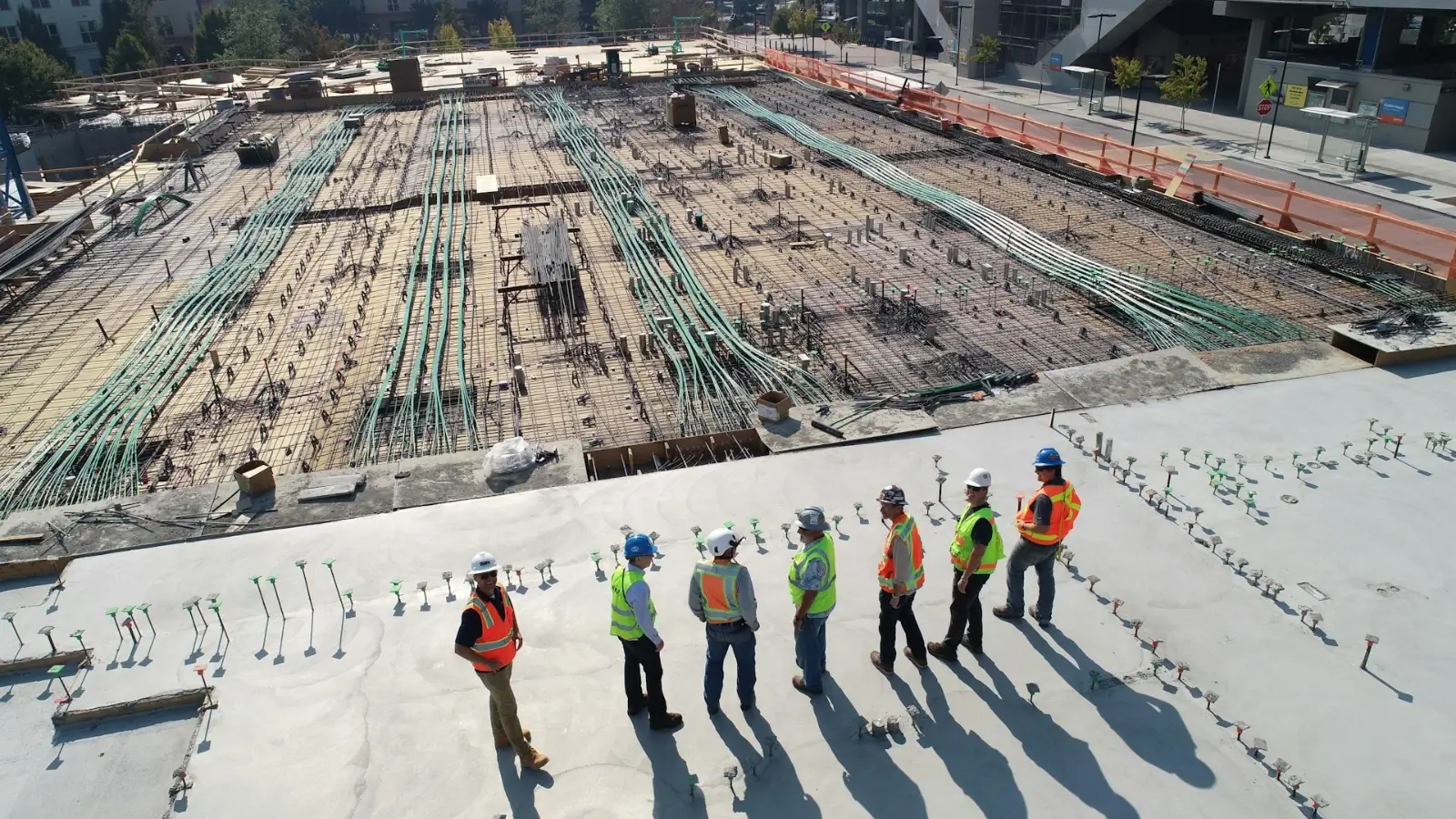NetSuite for construction companies has become essential to meet complicated needs and market volatility. ERP solutions help the construction sector manage expansion, equipment, and people instead of manually, inefficiently, and incorrectly. DevTeamPro's ERP expertise enables construction organizations to use ERP software to analyze, automate, and improve efficiency to solve industry-specific problems like project management, operations simplification, resource optimization, and real-time budget tracking.
Understanding Construction ERP Needs
Modern buildings have various obstacles in a continually changing market. Businesses employ advanced ERP systems to streamline their operations and improve their competitiveness in response to changing client expectations. ERP systems streamline construction operations, improving team and department collaboration and business growth.
Construction's Complexity
Technology and globalization have made the building sector increasingly complicated to navigate. New building materials, tight project schedules, and severe regulations make construction firms' jobs difficult. ERP business solutions are essential for improving construction operational management due to these industry issues.
ERP Solves Business Problems
ERP systems help manage construction projects by tracking resources, costs, and communication in real time. The consolidation of construction organizations' typically separate processes improves efficiency and collaboration, addressing industry pain concerns. Businesses can use ERP specialists like Rsult to tackle construction industry issues and grow.
Technology and Operational Efficiency
Technology changes construction quickly. HubSpot NetSuite integration and automation improve efficiency. These technologies in a tailored ERP system enable construction companies to streamline operations, fulfill industry needs, and compete. As the industry changes, organizations must adopt reliable, construction-focused ERP solutions to be nimble.
Essential Elements of a Successful Construction ERP System
A strong feature set that covers important operational areas is provided by an ERP system that is specifically tailored for the construction sector. These characteristics are intended to promote cooperative expansion, maximize spending, improve profitability, and boost general effectiveness. Let's examine the salient characteristics of a comprehensive ERP system for construction.
1. Adaptive Access Among Groups
All stakeholders, including team members, contractors, and vendors, must have responsive ERP access for them to safely and conveniently access the system. Decision-making and progress monitoring become more successful as a result of the collaboration and excellent communication that this promotes.
2. Complete Cost-Management Resources
The efficient management of expenses is crucial. ERP systems optimize material and service costs. This tool lets project managers track cost fluctuations, budgets, and corrective measures to keep projects on schedule and within budget.
3. Financial Management Integrated
Budgeting, reporting, cash flow, and cost control are all included in a comprehensive financial management ERP module to increase profit margins. Effective financial performance tracking and monitoring help construction companies reduce risks, guarantee compliance, and keep a positive financial perspective.
4. Automating Processes to Reduce Human Error
ERP automation simplifies operations, reduces errors, and reduces manual involvement. Automating monotonous tasks like document approvals and invoice creation can free up staff time for more strategic work.
5. Analytics to Make Well-Informed Choices
ERP analytics are essential for giving real-time data and insights to construction companies. Access to vital performance measures facilitates informed decision-making, ensuring effective resource distribution and project continuity.
6. Tailoring to Specific Business Procedures
To handle the particular procedures and needs of every construction company, ERP customization is essential. Businesses may adjust and match their procedures with the ERP solution thanks to a highly configurable system, which guarantees their competitiveness in the constantly changing construction market.
Best Practices for Selecting a Construction ERP System
The ideal ERP system for the construction industry must take into account several key factors that meet industry needs. The following recommended practices will help with the ERP decision process for construction businesses, guaranteeing a customized and effective ERP system evaluation:
1. Accessibility of Users
For smooth communication and cooperation across different teams and departments, the ERP system should be completely accessible to all stakeholders, including coworkers, vendors, and contractors.
2. Finance and Cost Control
To properly optimize spending and uphold budgetary restrictions, construction companies require comprehensive cost management tools and financial management modules.
Robust Automation: To minimize human error, streamline procedures, and boost overall productivity, repetitive jobs and workflows must be automated.
3. Educational Analytics
Advanced analytics and reporting features should be included in the ERP system to guarantee data-driven decision-making and enhance project performance insights.
4. Ability to Adjust to Special Business Procedures
NetSuite ERP systems that are customizable allow businesses to alter the program to fit their requirements, protocols, and industry norms.
Conclusion
NetSuite for construction companies offers capabilities to optimize procedures, reduce costly delays, and boost profitability. Automated resource planning and real-time budget tracking help construction companies compete. NetSuite can be the ideal strategic partner for your business if you want to modernize and grow with assurance. ERP systems are now considered a critical tool for companies aiming for sustainable growth in the dynamic construction industry of today. These potent technologies have undergone a substantial transformation in the sector by facilitating smooth data interchange, effective project management, and maximum resource allocation.
















